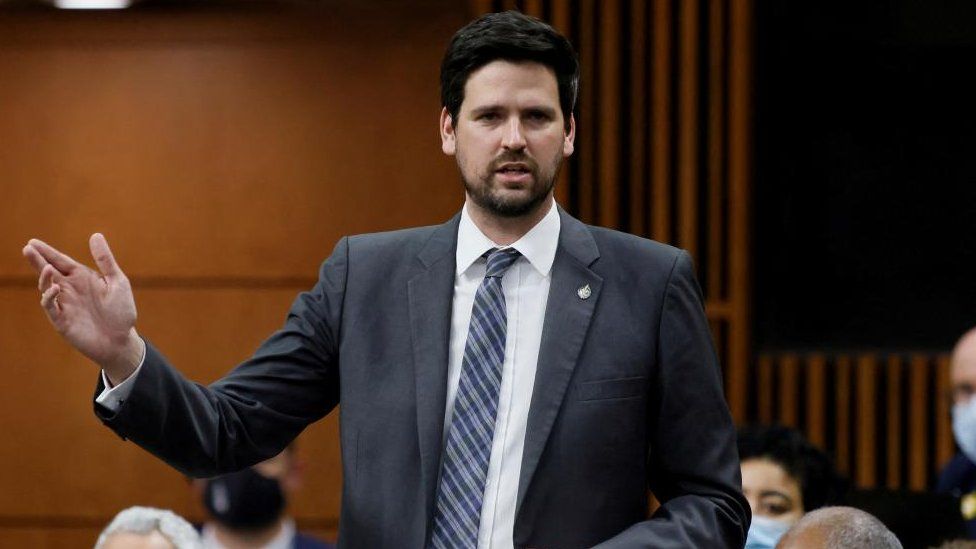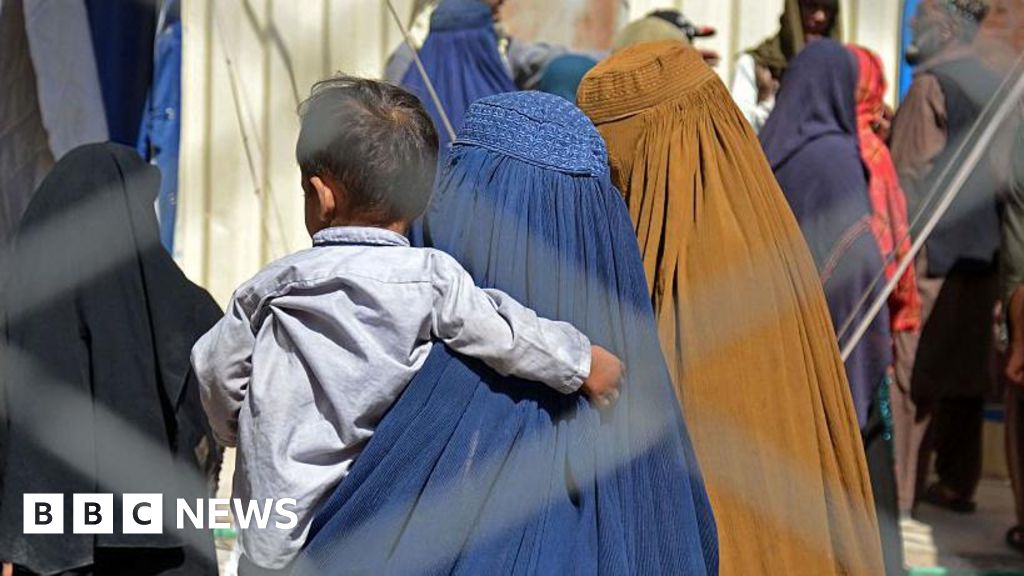ARTICLE AD BOX
 Image source, Reuters
Image source, Reuters
Housing Minister Sean Fraser says student visa cap one option to ease housing pressure
By Nadine Yousif
BBC News, Toronto
Canada is considering a first-ever cap on international students as it tries to solve its housing affordability crisis. Could the measure make a difference?
This week, Canadian Housing Minister Sean Fraser floated the idea of capping how many students Canada lets in from abroad as a way to help tackle the country's inflated housing costs.
He said it was "one of the options that we ought to consider".
His remarks come as Prime Minister Justin Trudeau faces growing criticism for failing to solve the housing crisis.
The reaction to Mr Fraser's remarks was swift, with the idea criticised by universities, as well as the province of Quebec, who says it would reject efforts to limit international students.
Canada accepted a record number of international students in 2022 - more than 800,000, a 75% increase from five years ago.
On the heels of Mr Fraser's remarks, Immigration Minister Marc Miller said Canada would also take a look at its immigration targets to see whether it has an impact on the housing crunch.
Canada has promised to welcome 1.5 million new immigrants by 2025 - but questions are growing about how to accept newcomers at that pace if there is nowhere to house them.
But experts say limiting new arrivals will do little to address the problem.
Just how bad is Canada's housing market?
For many in Canada, the struggle to pay their mortgage or rent is a persistent reality.
The average home price in Canada was around C$750,000 ($550,000;£435,000) as of August. That represents an increase of 360% from the year 2000, when the average was C$163,000.
The issue is especially acute in large cities like Toronto, where a six-figure annual income is needed to afford a house. Houses now typically sell for more than C$1m in Toronto and Vancouver.
Both are often ranked among the world's top 10 most unaffordable places to live in, according to the Dermographia International Housing Affordability Index, ranking alongside cities like Hong Kong and San Francisco.
Rent is also becoming more expensive in Canada's major cities. The average rent for a one-bedroom apartment in Toronto is C$2,500 - a 25% increase from last year.
In recent years, those living in smaller cities across Canada have begun to feel the crunch, too.
It is a long-standing national problem, and one that politicians from all levels of government have repeatedly promised to fix over the last decade.
One cause is a housing shortage, as population growth - largely fuelled by immigration - outpaces the number of homes being built.
Canada needs to build 5.8 million new homes, including two million rental units, by 2030 to solve the problem, according to the country's national housing agency.
Why it takes 30 years to buy a house in Canada
That is about 828,000 new homes a year - more than three times the 260,000 homes built in 2022.
Will a cap on international students help?
In recent years, the government has tried different measures to address the issue.
This includes putting a ban on foreign property ownership as of January in a bid to reduce competitiveness in the market.
Paul Kershaw, a public policy professor and founder of a housing think tank, said that while foreign ownership and a growing population play a role in Canada's housing problems, putting the blame solely on those factors is looking "for the easy villain".
"They are easy targets because it lets the rest of us and Canada think we're not entangled in this issue, and we are," he said.
Prof Kershaw pointed out that current homeowners benefit financially from rising property values, fuelling a culture of inequality around who owns and who doesn't.
The real estate industry - including the buying, selling, and renting of units - makes up the largest share of Canada's overall GDP at 13%, according to 2020 figures by Statistics Canada.
This means the sector is a large driver for economic growth and a lucrative investment opportunity for those able to participate.
Prof Kershaw said he believes things are unlikely to change until Canadians begin to view housing as "homes first and investment second".
Image source, Amin Kamaleddinezabadi
Image caption,Amin Kamaleddinezabadi, a recent graduate from the University of Toronto, said he believes international students are a valuable asset to Canada's long-term economic growth
For international students like Amin Kamaleddinezabadi, it's no secret that there are barriers to finding affordable housing off-campus.
The 30-year-old from Iran, who just completed his PhD in biomedical engineering at the University of Toronto, told the BBC that international students are sometimes asked to pay six months worth of rent in advance because they don't have a credit record in the country.
Rental prices have only increased since he began his studies in 2016, he said.
"Most international students rely on their own funding, and with the higher tuition fees they pay, it can be a really big burden for them financially," Mr Kamaleddinezabadi said.
Despite these challenges, he said he believes there are many benefits to living in Toronto, where he now works.
He cautioned there may be adverse effects to reducing the number of international students in Canada.
"International students who pursue higher education in Canada tend to integrate well into the country by the time they graduate, making them a valuable asset to Canada's long-term economic growth," he said.
"The Canadian government should prioritise them in any immigration program … and not penalise them because of the historic housing issues in our country."
In a statement, Universities Canada, which represents dozens of universities across the country, said tying international students to the country's housing crisis is "deeply concerning".
Prof Kershaw said housing is a complex issue and that the government needs a multi-pronged approach to match.
This includes addressing both housing supply and affordability, but also how important real estate is to Canada's wealth.
"If we don't have that clarity of purpose, then we will permit our policies to work at cross purposes - and that is absolutely one thing at play right now," he said.

 1 year ago
46
1 year ago
46








 English (US) ·
English (US) ·